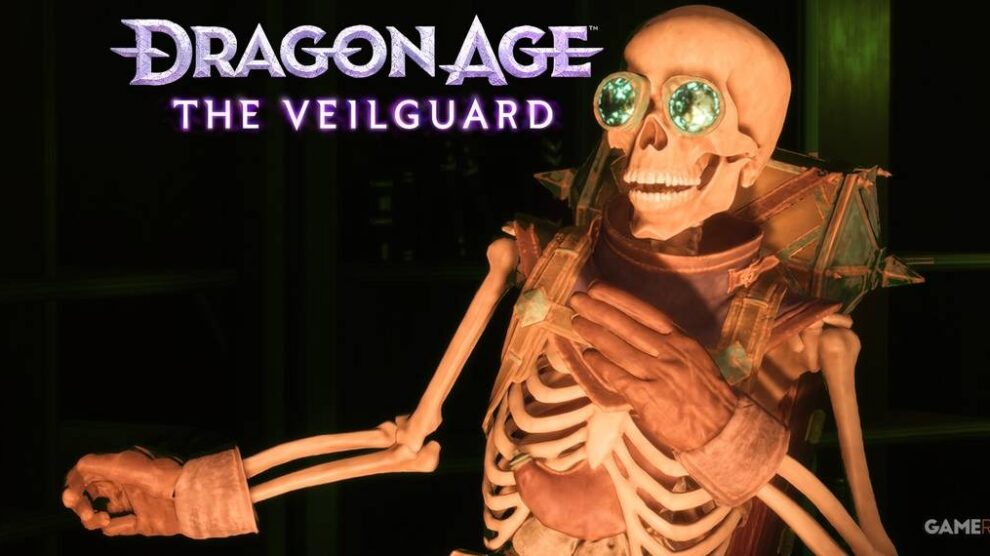The anticipation surrounding Dragon Age: The Veilguard was immense, with fans of the franchise hoping for a return to the captivating storytelling and innovative gameplay that defined the series. However, as the sales numbers trickle in following its launch, comparisons to the wildly successful Dragon Age: Inquisition are hard to avoid. While the new installment has been met with critical appreciation for its ambition, early indicators suggest its commercial performance may not match that of its predecessor. This has sparked discussions about shifting player expectations, market trends, and what the future holds for BioWare and its iconic franchise.

The Legacy of Inquisition and Its Lofty Standards
When Dragon Age: Inquisition was released in 2014, it was a landmark title for BioWare. Winning the coveted Game of the Year award at The Game Awards and selling millions of copies worldwide, it represented a high point for the studio. It capitalized on expansive, open-world gameplay, coupled with a narrative-driven experience that resonated deeply with its audience. The combination of critical acclaim and strong sales left a legacy that set an incredibly high bar for any sequel.
For The Veilguard, the shadow of Inquisition looms large. While it is unfair to judge a game solely based on its predecessor, the comparison is inevitable, especially given the nearly decade-long gap between the two titles. Fans expected BioWare to deliver a next-generation experience that not only embraced modern RPG mechanics but also retained the unique elements that made the franchise a fan favorite.
Early Sales Data – A Mixed Start
Initial sales reports for The Veilguard paint a mixed picture. While exact numbers are still being collated, early indications suggest that the game’s launch may not have reached the heights of Inquisition. Several factors contribute to this situation, including evolving consumer preferences, stiff competition, and possibly unmet expectations in certain areas.
A closer look at the figures reveals that while pre-orders were strong, day-one sales underwhelmed in several key markets. This dip may stem from a combination of cautious spending by consumers and hesitation after mixed reviews from early adopters. Another significant aspect is the growing trend of players waiting for post-launch patches or discounted editions before committing to a purchase.
Reception Among Fans and Critics
Critics have praised The Veilguard for its ambitious world-building and engaging storyline, which revisits beloved themes while introducing fresh elements. The game’s visuals, powered by cutting-edge technology, and its intricate character interactions have been particularly well-received. However, certain gameplay mechanics have drawn criticism. The combat system, while refined, has been described by some as less innovative than expected, and performance issues on certain platforms have been noted.
Fan reception has also been mixed. Long-time enthusiasts of the series have expressed both delight and disappointment, often in equal measure. While the game excels in delivering rich lore and character-driven narratives, some players feel it lacks the polish and revolutionary gameplay mechanics they had hoped for.
The Impact of Changing Market Dynamics
The gaming industry has evolved significantly since Inquisition was released. One of the major changes is the rise of live-service games and battle royale formats, which have captured the attention of a broad audience. These trends have shifted focus away from single-player RPGs, making it harder for titles like The Veilguard to achieve the same level of commercial success as earlier entries in the genre.
Additionally, subscription services such as Xbox Game Pass and PlayStation Plus have altered the purchasing habits of gamers. With many players now having access to extensive libraries of games through these services, the incentive to purchase full-priced titles at launch has diminished.
Analyzing the Competition
The timing of The Veilguard’s release has also played a role in its performance. Launching in a crowded period, with several other high-profile games hitting the market simultaneously, likely divided consumer attention and spending. Titles with broader appeal or more innovative features may have overshadowed the game, even if only temporarily.
Moreover, competition isn’t limited to new releases. The enduring popularity of older titles, kept alive through downloadable content and updates, continues to challenge newer games for players’ time and money.
BioWare’s Path Forward
Despite the challenges, The Veilguard represents a significant step forward for the Dragon Age series. It demonstrates BioWare’s commitment to storytelling and character development, which remain the hallmarks of its games. However, to ensure the franchise’s continued success, the studio must address several critical areas.
Listening to player feedback is paramount. Early criticism regarding certain gameplay elements and technical issues provides BioWare with an opportunity to improve the game through updates and expansions. A robust post-launch support plan, including regular patches and additional content, could help maintain player engagement and attract new buyers.
Marketing strategies should also adapt to the current landscape. Emphasizing the unique strengths of the game—such as its rich lore and immersive world—while addressing concerns about its gameplay and performance could help shift perceptions.
Looking Ahead
For fans of the Dragon Age series, The Veilguard is more than just a game; it is a continuation of a story that has captivated audiences for over a decade. While its launch may not have matched the astronomical success of Inquisition, it represents another chapter in a beloved franchise.
The road ahead for The Veilguard and BioWare will be shaped by how effectively they respond to the challenges posed by the modern gaming industry. By focusing on their strengths and addressing areas of concern, they have the potential to turn this latest installment into a long-term success.
For now, the story of The Veilguard is still being written. As players dive into its world and developers continue to refine the experience, the true measure of its success will unfold in the months to come.










Add Comment